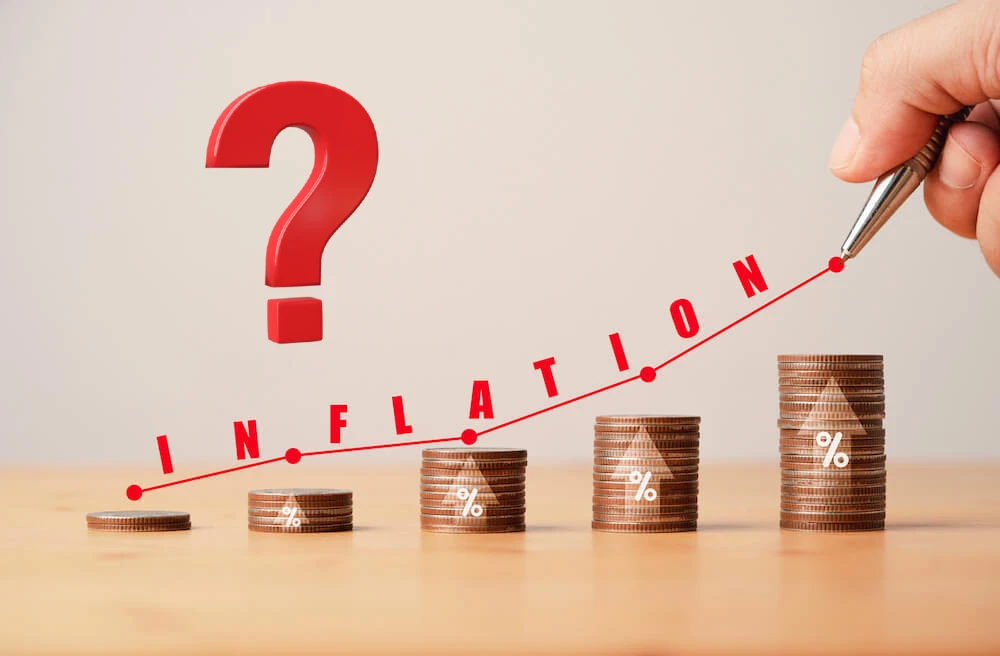The Impact of Inflation on Personal Finances
Inflation isn’t just a passing headline—it’s a significant economic force that affects your everyday finances, savings, and long-term plans. In October 2023, UK consumer prices rose by 4.6% compared to the previous year, with inflation hitting 4% by December 2023.

What exactly is inflation, and why does it matter to you? Simply put, inflation refers to the increase in the prices of goods and services over time, eroding the purchasing power of your money. When inflation outpaces income growth, it can strain your budget, affecting everything from groceries to housing.
While some inflation is necessary for economic growth, high or unpredictable inflation can complicate financial planning. Understanding these dynamics is crucial for making informed decisions about spending, saving, and investing.
Here are practical strategies to mitigate the impact of inflation on your finances:
- Budgeting and Spending Wisely: Track expenses closely, prioritize essential purchases, and adjust your budget to accommodate rising costs.
- Increasing Income: Explore opportunities for higher earnings through salary negotiations, additional work, or skill development.
- Building Emergency Savings: Maintain a robust emergency fund to cover living expenses during unexpected financial strains.
- Smart Shopping Habits: Seek out discounts, buy in bulk, and consider economical alternatives to stretch your budget.
- Energy Efficiency: Reduce utility costs by adopting energy-saving practices at home.
While options like short-term loans may provide temporary relief, borrowing should be approached cautiously and reserved for genuine emergencies. By understanding inflation and adopting proactive financial strategies, you can better safeguard your financial stability in challenging economic climates.
Navigating Rising Inflation: Practical Financial Strategies
Managing your finances during times of inflation requires foresight and strategic planning. Here are actionable tips to help you navigate the current cost of living crisis effectively:
- Debt Management: If you have loans or credit card debt with variable interest rates, consider refinancing to fixed-rate options to avoid escalating costs due to inflation. Discuss potential options with your lender for better financial stability.
- Long-Term Goal Planning: Continue contributing to your long-term goals such as retirement savings, even amid inflation. Adjust your savings rate if possible to counteract reduced purchasing power over time.
- Mindful Lifestyle Adjustments: Implement small lifestyle changes that can lead to significant savings. Opt for public transport over driving, cook at home instead of dining out, and explore free or low-cost entertainment options.
- Review Insurance Policies: Regularly review and adjust your insurance coverage to ensure it keeps pace with inflation. For instance, verify that your home insurance coverage aligns with current replacement costs.
- Investment Strategy Adaptation: Inflation can erode the value of money, emphasizing the need for a diversified investment portfolio. Consider including assets like UK index-linked gilts for inflation protection, equities of resilient companies, real estate investments, or commodities such as gold and oil.
- Continuous Financial Education: Stay informed about economic trends and financial advice to make informed decisions. Enhancing your financial knowledge will empower you to navigate economic uncertainties more effectively.
- Seek Professional Guidance: Consult a financial advisor if you’re uncertain about adjusting your financial plan. They can offer personalized advice tailored to your specific circumstances and goals.
Investing During Inflation: Strategic Options
Investing during inflation can be daunting but potentially rewarding with the right approach. Here are straightforward investment options to consider:
- Government Bonds for Inflation Protection: UK index-linked gilts adjust with inflation, providing a safeguard for your investment as prices rise.
- Equities (Shares): Invest in shares of companies that historically perform well during inflationary periods, potentially increasing in value despite rising prices.
- Real Estate Investments: Property values and rental income often rise with inflation, making real estate a favorable investment option.
- Commodities: Consider investing in physical commodities like gold or oil, as their value tends to appreciate during inflationary periods.
- Diversification: Spread your investments across different asset classes to mitigate risk and optimize returns.
Remember, all investments carry some level of risk, and it’s essential to align your investment decisions with your risk tolerance and financial goals. For beginners, resources like Money Helper’s beginner’s guide to investing can provide valuable insights.
Inflation-Proofing Your Finances
While inflation presents challenges, proactive financial planning and informed decision-making can help you safeguard your finances and maintain purchasing power. Explore tools like Money Helper’s Budget Planner and Bill Prioritiser to better manage your expenses and financial priorities during uncertain economic times.
By adopting a balanced approach of prudent budgeting, strategic investing, and continuous financial education, you can navigate inflationary pressures with confidence. For more insights and resources, visit our blog for valuable tips on managing finances effectively amidst economic fluctuations.

